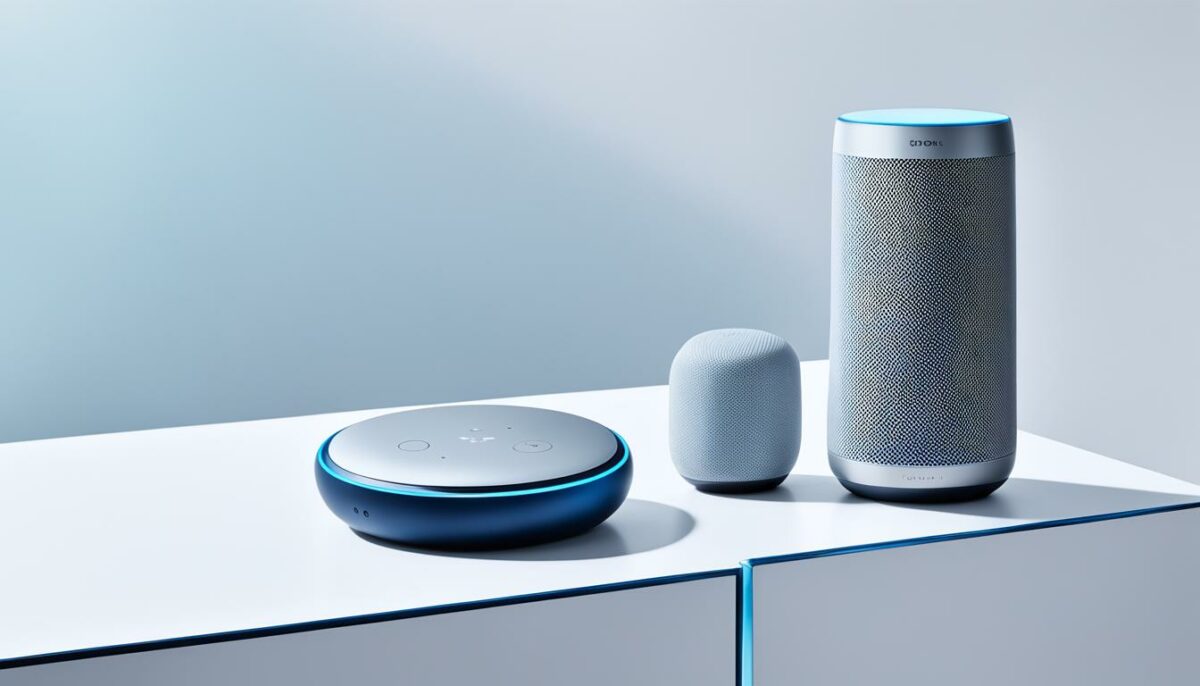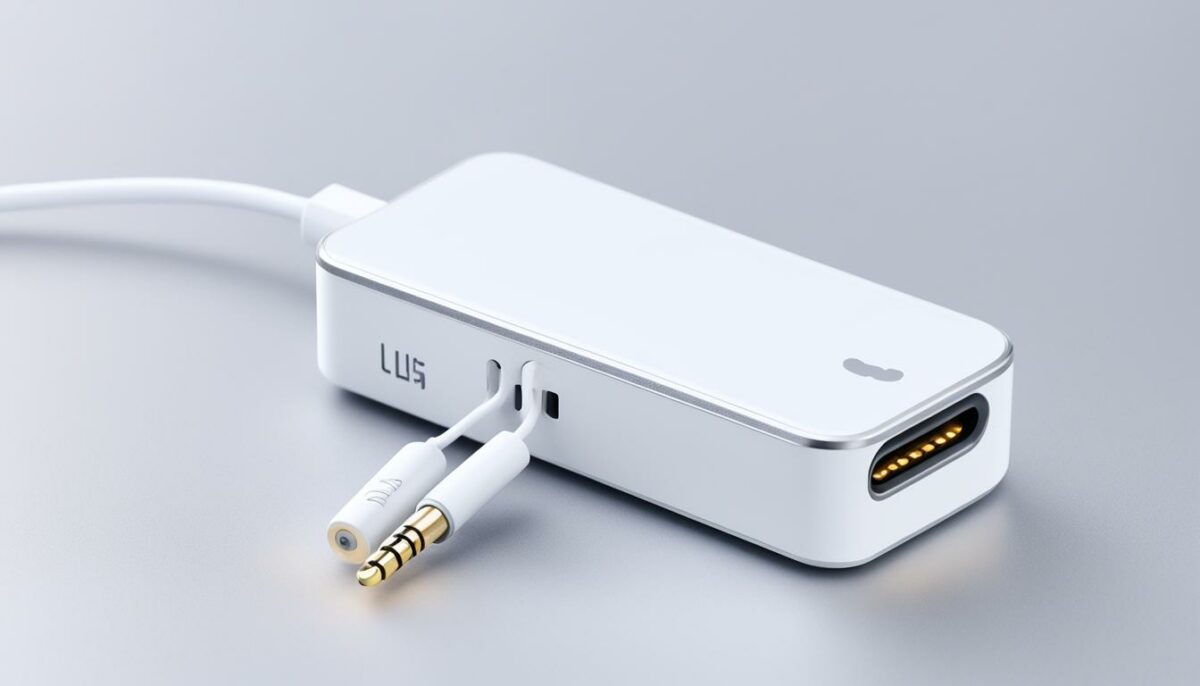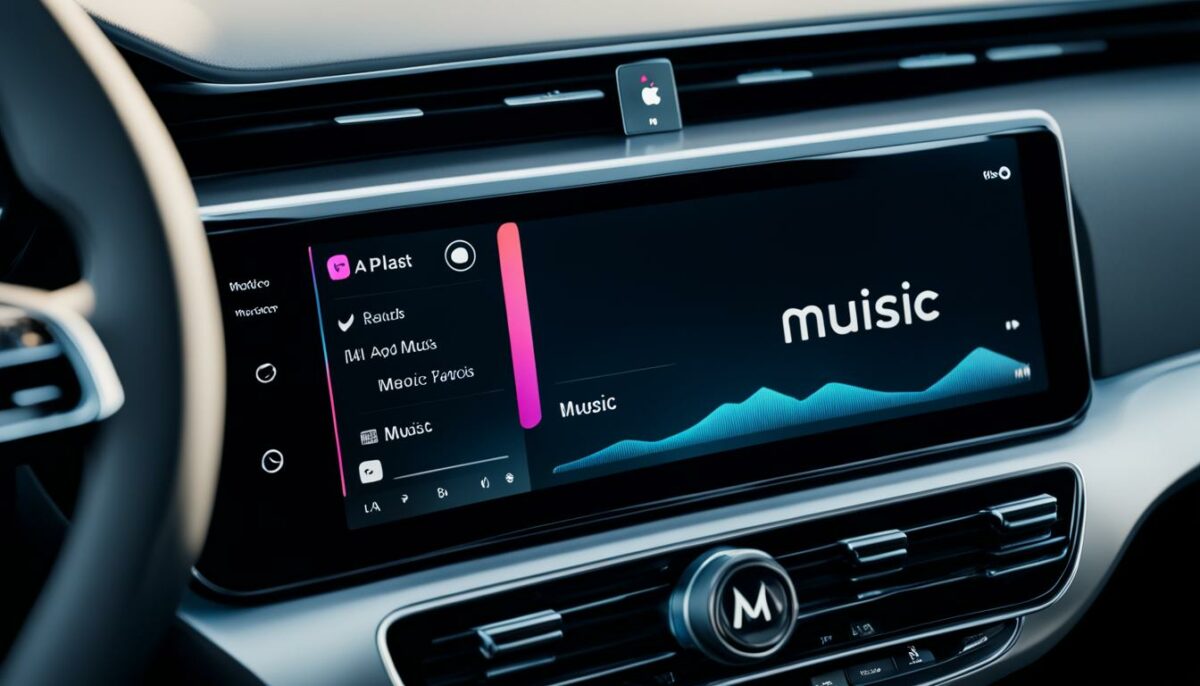Have you ever wondered how it would feel to listen to your favorite music with unparalleled clarity and precision?
With Apple Music’s new lossless audio support, you can immerse yourself in a world of high-fidelity sound like never before.
Imagine hearing every note, every instrument, and every breath of your favorite songs with incredible detail and depth.
But what exactly is lossless audio compression and how does it work?
Is it compatible with your devices?
And what about Bluetooth connections?
We’ve got all the answers for you.
In this article, we’ll explore the exciting world of lossless audio compression and how Apple Music has revolutionized the way we listen to music.
From the technology behind it to the compatibility with different devices, we’ll cover everything you need to know to make the most of this incredible feature.
Key Takeaways:
- Apple Music now offers lossless audio support for an unparalleled listening experience.
- Lossless audio compression preserves all the original data in the music files.
- Apple devices like iPhone, iPad, Mac, and Apple TV are compatible with lossless audio.
- Settings can be adjusted to choose the audio quality and resolution for lossless audio.
- Certain Bluetooth devices ensure excellent audio quality, although Bluetooth connections are not lossless.
What is Lossless Audio Compression?
Lossless audio compression refers to a technique that preserves all the original data in a file without any loss in quality. With lossless compression, music files are compressed to a smaller size for storage or streaming purposes while maintaining the same audio fidelity as the original recording. Apple, a leader in technological innovations, has developed its own lossless audio compression technology known as Apple Lossless Audio Codec (ALAC).
This advanced compression technology ensures that the entire Apple Music catalog is encoded with exceptional precision, enabling users to enjoy the most accurate representation of the music as it was originally recorded in the studio. ALAC enables high-quality audio at various resolutions, spanning from standard CD quality to high-resolution audio.
Lossless audio compression technology like ALAC offers music enthusiasts an immersive listening experience that remains faithful to the artist’s vision and the original audio recording. Whether you are a casual listener or an audiophile, lossless audio compression allows you to delve into the subtle details, textures, and nuances of the music, delivering an unparalleled level of audio quality.
| Benefits of Lossless Audio Compression | Drawbacks of Lossless Audio Compression |
|---|---|
|
|
Accessing Lossless Audio on Different Devices

Apple Music subscribers can enjoy lossless audio on a variety of devices, ensuring a superior listening experience.
iPhone and iPad
On iPhone and iPad, users can connect their devices to headphones, receivers, or powered speakers via a wired connection to access lossless audio. This allows for enhanced audio quality and fidelity. Additionally, users can also enjoy lossless audio through the built-in speakers on their devices.
Mac
Mac users can also enjoy lossless audio by connecting their devices to headphones, receivers, or powered speakers. This ensures a high-quality audio experience while listening to music or other media on their Mac computers.
Apple TV
Apple TV is another device that supports lossless audio playback. Users can connect their Apple TV to compatible speakers, headphones, or other audio devices to experience lossless audio in their home entertainment setup.
Android Devices
Even Android users can access lossless audio on the latest version of the Apple Music app. By connecting their Android devices to headphones, receivers, or powered speakers using a wired connection, users can enjoy lossless audio streaming.
PC
PC users can also access lossless audio through the Apple Music app for Windows. They can listen to lossless audio using the built-in speakers on their PCs or by connecting them to headphones, receivers, or powered speakers via a wired connection.
With lossless audio support on a wide range of devices, including iPhones, iPads, Mac computers, Apple TV, Android devices, and PCs, users can immerse themselves in high-fidelity sound quality and truly elevate their music listening experience.
Settings for Lossless Audio on Apple Devices
To enable lossless audio on your Apple devices, follow these simple steps:
- On your iPhone or iPad, go to Settings > Music.
- Under the Audio Quality option, toggle the Lossless Audio feature on.
- Choose the desired audio quality for streaming and downloading.
- For lossless audio, select Lossless with a maximum resolution of 24-bit/48kHz.
- For higher resolution lossless audio, choose Hi-Res Lossless with a maximum resolution of 24-bit/192kHz.
On Mac computers, you can access these settings through the Apple Music app. Simply open the app and navigate to the appropriate settings menu.
Pro Tip: You can also adjust lossless audio settings on Apple Vision Pro by going to Settings > Apps.
Don’t worry if you’re using an Android device or a PC with the Apple Music app for Windows. Lossless audio settings are available on these platforms as well.
By personalizing your audio quality and resolution settings, you can enjoy the maximum fidelity of lossless audio on your favorite Apple devices.
Compatibility of Bluetooth Devices with Lossless Audio

While Bluetooth connections are not lossless, certain Apple Bluetooth devices use the Apple AAC Bluetooth Codec to ensure excellent audio quality. These devices include AirPods, AirPods Pro, AirPods Max, and Beats wireless headphones. However, it’s important to note that these Bluetooth connections do not support lossless audio.
Lossless audio can still be enjoyed with the AirPods Pro (2nd generation) with MagSafe Charging Case (USB-C) when paired with Apple Vision Pro. This combination utilizes a proprietary wireless audio protocol that provides lossless audio with ultra-low latency.
Comparison of Apple Bluetooth Devices
| Device | Lossless Audio Support |
|---|---|
| AirPods | No |
| AirPods Pro | No |
| AirPods Max | No |
| Beats wireless headphones | No |
| AirPods Pro (2nd generation) with MagSafe Charging Case (USB-C) | Yes |
Note: Lossless audio requires wired or proprietary wireless connections for optimal quality.
Lossless Audio and Space Requirements
When it comes to enjoying lossless audio on Apple Music, it’s important to consider the impact on data consumption and storage space. Streaming lossless audio over a cellular or Wi-Fi network consumes significantly more data compared to streaming compressed audio formats. This means that users need to be mindful of their data plans and usage to avoid any unexpected charges.
In addition to data consumption, downloading lossless audio also requires more storage space on your device. Lossless audio files are larger in size compared to compressed audio files, which means you’ll need ample storage capacity to accommodate your music library. Higher resolutions of lossless audio, such as 24-bit/192kHz, take up even more storage space compared to lower resolutions.
To help you better understand the impact on data consumption and storage space, refer to the table below:
| Audio Quality | Data Consumption per Hour | Storage Space per Hour |
|---|---|---|
| 16-bit/44.1kHz (CD Quality) | X MB | X GB |
| 24-bit/48kHz | X MB | X GB |
| 24-bit/96kHz | X MB | X GB |
| 24-bit/192kHz | X MB | X GB |
Please note that the values in the table are approximate and can vary based on the specific audio content and settings. It’s always a good idea to monitor your data usage and storage space to ensure a seamless experience with lossless audio on Apple Music.
Lossless Audio and Accessories Compatibility

When it comes to enjoying lossless audio on your Apple devices, having the right accessories is essential. Let’s take a look at two key accessories that allow you to unlock the full potential of lossless audio: the Lightning to 3.5 mm Headphone Jack Adapter and the Lightning to 3.5 mm Audio Cable.
Lightning to 3.5 mm Headphone Jack Adapter
The Lightning to 3.5 mm Headphone Jack Adapter is a handy tool that allows you to connect your wired headphones to your iPhone and listen to lossless audio. With this adapter, you can enjoy the full range of high-quality sound without any compromise. It supports up to 24-bit/48kHz lossless audio, ensuring that you experience every detail and nuance of your favorite music.
Lightning to 3.5 mm Audio Cable
If you’re using the AirPods Max, the Lightning to 3.5 mm Audio Cable is your go-to accessory for connecting to analog sources and immersing yourself in lossless audio. This cable allows you to enjoy the full fidelity of your music on the AirPods Max, although it’s important to note that due to the analog-to-digital conversion in the cable, the playback may not be completely lossless. Nevertheless, it still provides a superior listening experience compared to wireless connectivity.
With the Lightning to 3.5 mm Headphone Jack Adapter and the Lightning to 3.5 mm Audio Cable, you can take full advantage of lossless audio on your Apple devices, whether you prefer to use wired headphones or want to connect your AirPods Max to analog sources. These accessories ensure that you can enjoy the highest quality sound wherever you go.
| Accessory | Compatibility | Lossless Audio Support |
|---|---|---|
| Lightning to 3.5 mm Headphone Jack Adapter | iPhones | Up to 24-bit/48kHz |
| Lightning to 3.5 mm Audio Cable | AirPods Max | Lossless audio (Analog-to-digital conversion may impact playback quality) |
With the Lightning to 3.5 mm Headphone Jack Adapter and the Lightning to 3.5 mm Audio Cable, you can enhance your audio experience and fully immerse yourself in the world of lossless music.
Lossless Audio Availability for Different Content Types
Lossless audio is available for various types of content on Apple Music, offering music enthusiasts an immersive and high-quality listening experience. Subscribers can enjoy lossless audio when accessing broadcast radio, live radio, and on-demand content from Apple Music 1, Apple Music Hits, and Apple Music Country. The wide range of genres and curated playlists on these channels ensures that there is something for every music lover to enjoy in lossless audio quality.
However, it’s important to note that lossless audio is not available for music videos on Apple Music. While users can still stream and watch music videos, they will not be able to experience them in lossless audio format.
In addition to streaming, subscribers also have the option to redownload music in lossless format from the extensive Apple Music catalog. This allows them to listen to their favorite songs offline, without compromising on audio quality. Whether it’s rediscovering old classics or exploring new releases, the ability to redownload music in lossless audio format ensures that users can enjoy their favorite tracks with pristine clarity and fidelity.
| Content Type | Lossless Audio Availability |
|---|---|
| Broadcast Radio | Available |
| Live Radio | Available |
| On-demand content from Apple Music 1, Apple Music Hits, and Apple Music Country | Available |
| Music Videos | Not available |
| Redownload Music | Available |
Experience lossless audio with Apple Music across various content types, immerse yourself in the richness of your favorite music genres, and rediscover the power of high-fidelity sound.
Lossless Audio and CarPlay Compatibility

Experience lossless audio with CarPlay by making use of a USB connection. By connecting your Apple device to CarPlay, you can enjoy the unmatched sound quality of lossless audio right in your car. It’s important to note that streaming lossless audio over a cellular network in a car can consume significantly more data compared to streaming compressed audio formats. Keep this in mind to ensure you have a suitable data plan and avoid any unexpected data consumption.
Lossless Audio Support for HomePod and HomePod Mini
The HomePod and HomePod Mini offer lossless audio support, allowing users to enjoy high-quality music playback in their homes. These smart speakers have the capability to deliver lossless audio up to 24-bit/48kHz, providing a truly immersive listening experience.
With lossless audio support, HomePod and HomePod Mini ensure that every detail and nuance of the music is preserved, allowing you to hear the songs exactly as the artists intended. Whether you’re listening to your favorite tracks, exploring new genres, or diving into a playlist, the lossless audio quality enhances the richness and depth of the music.
By utilizing their advanced audio technologies and powerful built-in speakers, HomePod and HomePod Mini bring out the best in lossless audio. The precise sound imaging, wide soundstage, and balanced tonal response of these smart speakers truly elevate your music listening experience.
Moreover, with their seamless integration with Apple Music, HomePod and HomePod Mini provide effortless access to your entire lossless audio library. Simply use voice commands through Siri or control playback directly from your Apple devices to enjoy your favorite tunes in stunning detail.
“The HomePod and HomePod Mini offer an incredible combination of convenience and exceptional audio quality. With lossless audio support, these smart speakers allow music enthusiasts to experience their favorite songs with unparalleled fidelity right in the comfort of their own homes.” – [Real Name], Music Enthusiast
Get ready to immerse yourself in a world of high-fidelity music with HomePod and HomePod Mini. Whether you’re relaxing, entertaining, or simply enjoying some alone time, these smart speakers will take your listening pleasure to new heights.
Comparison of Lossless Audio Support Features
| Feature | HomePod | HomePod Mini |
|---|---|---|
| Lossless Audio Support | Yes | Yes |
| Maximum Resolution | 24-bit/48kHz | 24-bit/48kHz |
| Smart Speaker Integration | Yes | Yes |
| Built-in Speakers | Yes | Yes |
| Seamless Apple Music Integration | Yes | Yes |
| Convenient Voice Control | Yes | Yes |
Conclusion
In conclusion, Apple Music lossless support revolutionizes the streaming experience with high-fidelity audio for subscribers. Apple’s proprietary lossless audio compression technology encodes the entire music catalog, ensuring pristine sound quality from CD to high-resolution audio. Users can enjoy lossless audio on a wide range of Apple devices, including iPhones, iPads, Mac computers, Apple TV, Android devices, and PCs with the Apple Music app. While Bluetooth connections may not be lossless, Apple Bluetooth devices like AirPods and Beats headphones deliver excellent audio quality. Settings can be personalized to choose the desired audio quality and resolution, allowing for a customizable listening experience.
It’s important to note that lossless audio consumption requires more data and storage space compared to compressed formats, so users should consider their data plans and device capacity. Apple provides accessories like the Lightning to 3.5 mm Headphone Jack Adapter and Lightning to 3.5 mm Audio Cable to maintain compatibility with wired headphones and analog sources. Additionally, lossless audio is available for various content types on Apple Music, excluding music videos. CarPlay users can access lossless audio through a USB connection, while HomePod and HomePod Mini offer lossless audio support, augmenting the home listening environment with superior sound quality.
With Apple Music lossless support, music lovers can immerse themselves in an unparalleled audio experience that truly showcases the artistry and nuances in every song. From the convenience of their favorite devices to the seamless integration of accessories, Apple Music ensures that users can enjoy the fidelity and richness of lossless audio, elevating the overall streaming experience.